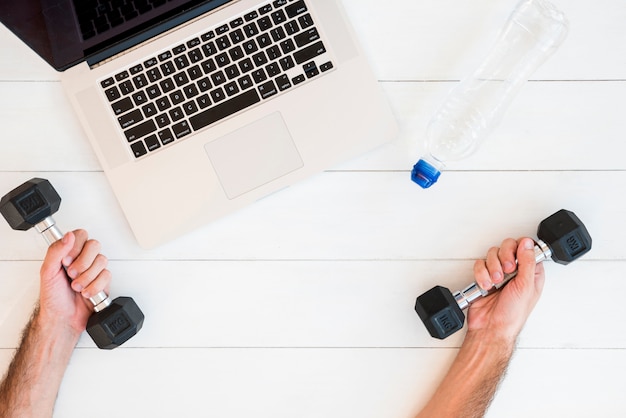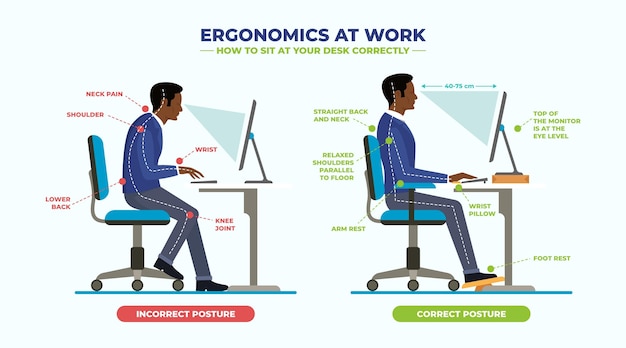If you're an office worker struggling to stay alert and energized throughout the day, you're not alone. Many professionals hit that dreaded 3 PM slump, reaching for coffee or sugary snacks just to power through. But fatigue isn’t inevitable. Often, it’s caused by small, unnoticed habits that quietly drain your energy.
Below, we reveal 18 common mistakes sabotaging your energy—and actionable steps you can take to reverse them, with clear progress checks so you can see real results.
Starting your day without fuel sets you up for low blood sugar and sluggishness. A balanced breakfast with protein, fiber, and healthy fats stabilizes energy.
Action: Eat within 90 minutes of waking. Try Greek yogurt with berries or eggs with whole-grain toast.
Progress Check: Track energy levels each morning for one week. Aim for consistent alertness by day 5.
Even mild dehydration reduces concentration and increases fatigue. Office environments with dry air worsen this.
Action: Keep a 500ml water bottle on your desk. Refill it twice before lunch and twice after.
Progress Check: Monitor urine color—pale yellow means you're hydrated.
Slouching compresses organs and restricts breathing, reducing oxygen flow to the brain.
Action: Adjust your chair so feet are flat, knees at 90°, and screen at eye level.
Progress Check: Set hourly reminders to check posture. Aim for 80% compliance over a week.
Prolonged sitting slows circulation and lowers metabolic rate, leading to mental fog.
Action: Stand or walk for 5 minutes every hour. Use a standing desk or take calls on your feet.
Progress Check: Use a step tracker. Aim for 200 extra steps per workday, increasing weekly.
Too much coffee spikes energy then crashes it. It can also disrupt sleep.
Action: Limit caffeine to 200–400mg daily (1–2 cups) and avoid it after 2 PM.
Progress Check: Track sleep quality and afternoon energy. Adjust intake if crashes persist.
White bread, pastries, and sugary snacks cause blood sugar spikes and crashes.
Action: Replace with complex carbs like oats, quinoa, or sweet potatoes.
Progress Check: Note energy stability after meals. Fewer crashes = success.
Dim or artificial lighting disrupts circadian rhythms, increasing fatigue.
Action: Sit near natural light. Use a daylight-spectrum desk lamp if needed.
Progress Check: Rate alertness at 10 AM and 2 PM daily. Look for improvement over 5 days.
Working nonstop leads to mental exhaustion. Short breaks restore focus.
Action: Follow the 20-20-20 rule: every 20 minutes, look at something 20 feet away for 20 seconds.
Progress Check: Use a timer. Track how many breaks you take daily. Aim for 12–15.
Inconsistent sleep schedules or screen use before bed reduce sleep quality.
Action: Set a fixed bedtime. Avoid screens 1 hour before sleep. Try reading or stretching.
Progress Check: Track sleep duration and morning alertness. Aim for 7–8 hours consistently.
Chronic stress increases cortisol, which drains energy over time.
Action: Practice 5 minutes of deep breathing or mindfulness daily.
Progress Check: Rate stress on a 1–10 scale each afternoon. Aim to reduce average by 2 points in a week.
Even 5 minutes of movement boosts circulation and mental clarity.
Action: Do 10 squats or a quick walk around the office every 2 hours.
Progress Check: Log each movement break. Aim for 4 per day by week’s end.
Eating while working prevents mental reset and reduces digestion efficiency.
Action: Take a full 20-minute break away from your screen.
Progress Check: Note how refreshed you feel after lunch. Track compliance daily.
Poor ventilation increases CO2 levels, leading to drowsiness.
Action: Open a window briefly or use a desk fan for airflow. Add a small air-purifying plant.
Progress Check: Monitor alertness during afternoon meetings. Look for improvement.
Unclear tasks increase mental fatigue. Prioritizing reduces cognitive load.
Action: Start each day listing 3 key tasks. Focus on completing them first.
Progress Check: Rate end-of-day satisfaction. Aim to complete 4 out of 5 daily goal lists.
Blurry vision or screen glare forces your brain to work harder, causing fatigue.
Action: Adjust screen brightness to match surroundings. Use blue light filters after noon.
Progress Check: Note headaches or eye discomfort. Aim for zero incidents by day 7.
Isolation reduces motivation and mental energy.
Action: Schedule a 10-minute chat with a colleague daily—no work talk.
Progress Check: Rate mood at the end of the day. Look for steady improvement.
Blue light suppresses melatonin, delaying sleep onset.
Action: Enable night mode on devices after 8 PM. Avoid screens 60 minutes before bed.
Progress Check: Track how quickly you fall asleep. Aim to reduce time by 10 minutes in a week.
Going too long without eating causes energy dips.
Action: Eat a protein-rich snack (e.g., nuts, yogurt) around 10 AM and 3 PM.
Progress Check: Monitor mid-morning and mid-afternoon energy. Aim for no crashes.
Feeling more energetic isn’t about drastic changes—it’s about fixing small, daily habits. Pick 3–5 of these fixes to focus on first. Track your progress, adjust as needed, and build momentum. Within weeks, you’ll notice sharper focus, better mood, and sustained energy—all from your office chair.

Wellness

Wellness

Wellness

Wellness

Health

Wellness

Wellness

Wellness

Fitness

Wellness

Wellness

Fitness

Health

Fitness

Health

Health